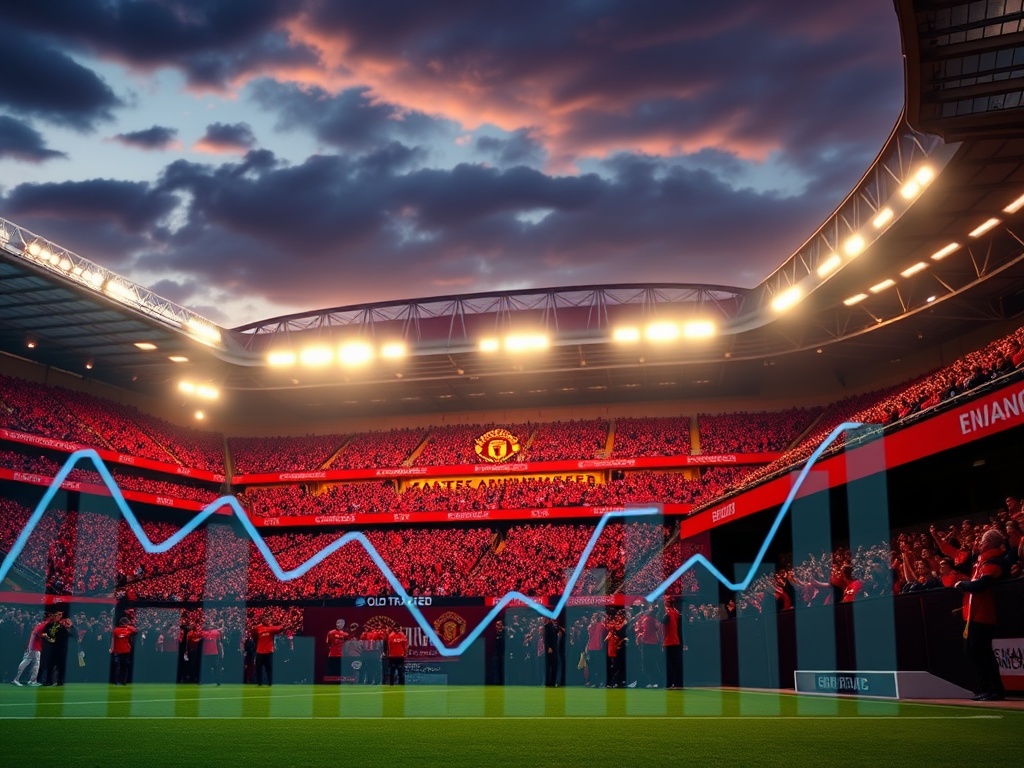Financial Struggles at Manchester United Under Ineos Ownership
Manchester United co-owners Ineos have experienced a tumultuous first year at the helm, with recent financial reports revealing significant challenges. The club has posted a staggering loss of £27.7 million in their second quarter financial results, a figure partly attributed to the hefty £14.5 million cost incurred from dismissing both Erik ten Hag and Dan Ashworth, whose brief tenure as director of football lasted a mere three months.
The compensation package that Manchester United paid to Newcastle United for Ashworth’s services was kept under wraps, but initial claims suggesting it reached as high as £5 million have proven to be incorrect. The financial breakdown indicates that the total cost associated with hiring and subsequently terminating the former director of football amounted to £4.1 million. This misstep reflects a costly error on the part of Ineos, who had placed considerable faith in Ashworth to spearhead a much-needed overhaul of the club’s football operations.
Impending Changes in Transfer Strategy
As reported by The i Paper on Tuesday, Manchester United’s approach to the transfer market is set for a significant overhaul this summer. The club is grappling with the constraints imposed by the Premier League’s Profitability and Sustainability Rules (PSR), which could leave them with as little as £20 million in “PSR headroom” for player acquisitions. With limited cash reserves, a strategic focus on player trading becomes essential to reshape the squad under manager Ruben Amorim.
In their pursuit of fresh talent, the Red Devils invested £11 million to secure Amorim’s services, alongside nearly £250 million in transfer fees. However, their current league standing at 15th place raises concerns; if performance does not improve, the club could face a financial shortfall of between £30 million and £40 million in performance-related prize money. The club has communicated to supporter groups that its current financial model is unsustainable, prompting discussions about further cost-cutting measures.
Supporter Concerns and Financial Mismanagement

Supporter groups are particularly anxious as the club deliberates ticket prices for the upcoming year, with fears of drastic increases looming large. Football finance experts have pointed out that these financial figures highlight the dual issues of poor on-field performance and a disappointing initial year for Sir Jim Ratcliffe’s Ineos group.
Finance expert Kieran Maguire shared insights with The i Paper, stating that while the reported numbers reveal underlying issues, the fundamental financials “aren’t that bad.” He emphasized that the persistent debt from loans tied to the Glazer family’s takeover, coupled with poor decision-making, is detrimental to the club’s financial health. Maguire highlighted that United reported an EBITDA profit of £94 million in the first half of the year, which is a cash profit. However, he pointed out that this profit is being eroded by questionable spending in the transfer market and significant interest costs associated with existing debts.
“They’ve spent a quarter of a billion pounds in their first summer in charge and now they’re expressing financial constraints, which seems disingenuous,” Maguire remarked. He argued that better recruitment decisions could have potentially placed the club higher up the Premier League table, possibly in contention for Champions League qualification and the associated financial benefits.
Concerns from Supporters’ Trust
The Manchester United Supporters’ Trust (MUST) has voiced their concerns, stating that the latest results expose the scale of financial mismanagement at Old Trafford. They have cautioned Ineos against attempting to “plug gaps” in the club’s finances by increasing ticket prices for the 2025/26 season. The recent hike in ticket prices to £66 has already sparked outrage among fans, and MUST spokesman Chris Rumfitt has expressed that relying on ticket price increases is not a viable solution.
- “To recover the £37 million in annual interest from the Glazer loans, you would need to add an additional £25 to the price of every single ticket, which would likely lead to a half-empty stadium,” Rumfitt noted.
- “They cannot resolve this issue solely through ticket price hikes. Our greatest concern is that they might be about to attempt just that.”
Rumfitt further criticized Ineos for their underwhelming first year in charge, urging them to avoid making decisions that could exacerbate the current situation. “The reality is that the situation has deteriorated over the past year. While some of these issues are rooted in historical problems, particularly the debt inherited from the Glazer family, the current management’s response has not been adequate,” he stated. “We cannot simply cut our way out of this predicament; we need to find ways to grow and improve.”
